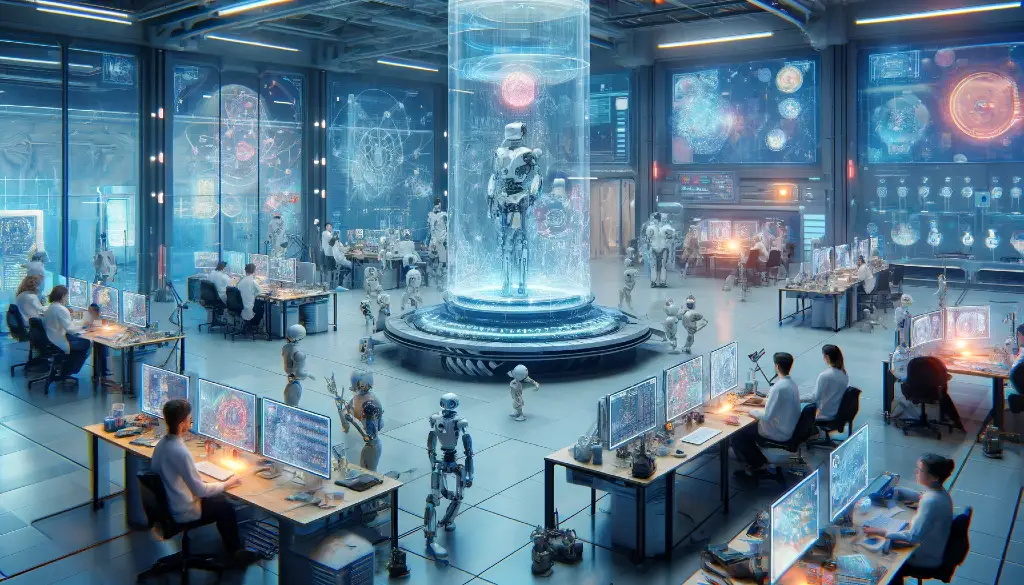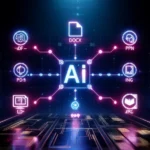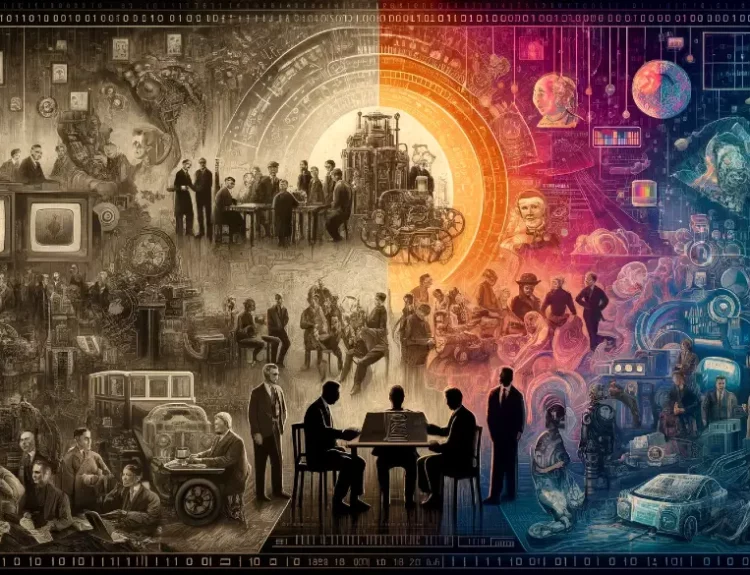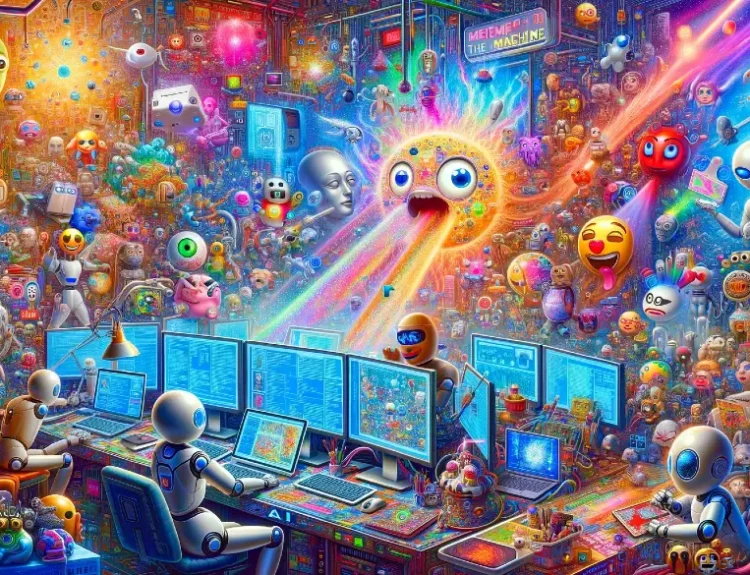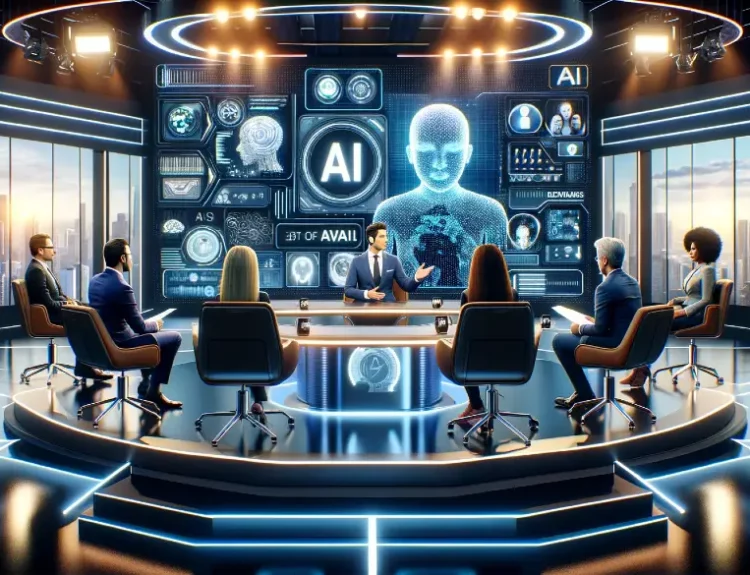Introduction
In the ever-evolving world of computer science, a term continues to dominate headlines and spark curiosity: Artificial Intelligence (AI). AI computer definition, artificial intelligence in computing, explaining the meaning of AI in computing – these are just some of the phrases buzzing around the digital landscape. But what exactly is AI, and how does it impact the field of computer science?
This blog aims to decipher AI, cutting through the confusion and providing a clear understanding of its definition and implications. We’ll explore concepts like AI-driven technology explanation and clarifying the concept of AI in computers. By the end, you’ll be equipped to navigate the world of AI with confidence, grasping its importance in computer science and the exciting possibilities it holds for the future.
Demystifying AI: What it Means for Computers
So, what exactly is AI in the context of computers? Here’s a breakdown: AI refers to the ability of machines to exhibit intelligent behavior typically associated with humans. This includes tasks like learning, problem-solving, and decision-making. It’s important to differentiate between two key types of AI:
- Narrow AI (or Artificial Narrow Intelligence): This type excels at performing specific, well-defined tasks. Think of it as a master of one trade. For example, a chess-playing AI or a spam filter utilizing machine learning (ML) are both examples of narrow AI.
- General AI (or Artificial General Intelligence): This, on the other hand, is the holy grail of AI research. It aims to create machines with human-like intelligence, capable of tackling a wide range of cognitive tasks and adapting to new situations. While General AI remains largely theoretical, advancements in narrow AI are paving the way for its potential future development.
Now, let’s delve into AI-driven technology. Machine Learning (ML) is a fundamental building block of many AI applications. ML algorithms learn from vast amounts of data, improving their performance over time. Imagine a program learning to recognize faces in photos by analyzing millions of images – that’s the power of ML at work.
It’s crucial to clarify the concept of AI in computers. AI is not just fancy automation. While automation involves following pre-programmed rules, AI has the ability to learn and adapt, making it far more versatile and powerful. Additionally, AI doesn’t imply sentience or consciousness in machines. They are incredibly skilled at mimicking intelligent behavior, but they lack the emotions and self-awareness that define human consciousness.
The Importance of AI in Computer Science
The influence of AI on computer science is undeniable. It acts as a transformative force, impacting various aspects of the field:
- Enhanced Problem-Solving: AI algorithms can tackle complex problems that were previously beyond the reach of traditional computing methods. This opens doors for groundbreaking advancements in areas like scientific research and drug discovery.
- Automating Complex Tasks: AI is revolutionizing automation by taking over repetitive and tedious tasks, freeing up human resources for more creative and strategic endeavors. Imagine a world where AI handles mundane coding tasks, allowing programmers to focus on innovative solutions.
- Development of Intelligent Systems and Applications: AI is fueling the creation of intelligent systems that can interact with the world and make decisions based on real-time data. This paves the way for groundbreaking applications like self-driving cars and virtual assistants with ever-increasing capabilities.
The impact of AI extends beyond these examples. As we delve deeper, we’ll explore how AI applications in computing are transforming various industries and shaping the future of technology.
Understanding the Role of AI in Technology
The influence of AI transcends the boundaries of computer science, rippling outwards and revolutionizing various technology sectors:
- Healthcare: AI is transforming healthcare by analyzing medical data to identify diseases at earlier stages, predict patient outcomes, and even assist in surgeries with remarkable precision. AI applications in computing are leading to the development of intelligent diagnostic tools and personalized treatment plans.
- Finance: AI algorithms are making waves in the financial sector, offering high-frequency trading capabilities, fraud detection, and risk assessment with exceptional accuracy. This not only improves efficiency but also fosters a more secure financial landscape.
- Transportation: The dream of self-driving cars is becoming a reality thanks to AI advancements in computer vision and decision-making. AI-powered systems are also optimizing traffic flow and improving overall transportation safety.
- Security: Cybersecurity takes a significant leap forward with AI. By analyzing vast amounts of data, AI systems can detect and prevent cyberattacks with increased efficiency, safeguarding sensitive information.
While AI offers a plethora of benefits, it’s crucial to acknowledge the ethical considerations that accompany its development and use. Bias in algorithms, for instance, can lead to discriminatory practices if left unchecked. As we move forward, ensuring responsible and ethical AI development is paramount.
Implications of AI in Computer Systems
Integrating AI into computer systems brings a wave of potential benefits:
- Increased Efficiency and Productivity: AI can automate tasks, optimize resource allocation, and streamline processes, leading to significant gains in efficiency and productivity across various domains.
- Improved Decision-Making Capabilities: AI systems can analyze vast amounts of data in real-time, providing insights and recommendations that can enhance decision-making accuracy and effectiveness. This empowers individuals and organizations to make data-driven choices.
- Innovation in Various Fields: AI acts as a catalyst for innovation by enabling the development of new tools, technologies, and applications. From groundbreaking scientific discoveries to revolutionary advancements in creative fields, AI’s potential for innovation is boundless.
However, integrating AI into computer systems also presents potential challenges that demand our attention:
- Job Displacement Concerns: Automation powered by AI might lead to job displacement in certain sectors. Proactive measures are necessary to address these concerns and equip individuals with the skills needed to thrive in the AI-driven future.
- Bias in Algorithms: As mentioned earlier, bias in algorithms can lead to discriminatory outcomes. Mitigating bias requires careful data selection, algorithm design, and ongoing monitoring to ensure fairness and inclusivity.
- Need for Robust Security Measures: AI systems are complex and constantly evolving, which necessitates robust security measures to prevent them from being compromised or misused. Ensuring the security of AI systems is crucial for maintaining trust and ethical considerations.
Building the Future of AI with Verdict
Imagine a future where AI isn’t just a tool, but a collaborative partner, continuously learning and evolving alongside humanity. That’s the vision behind Verdict. Verdict goes beyond creating just another AI platform. It fosters a space where Machine Learning (ML) and Generative Artificial Intelligence (GenAI) can flourish through real-world interactions and the collective wisdom of its community.
Every AI Search, AI Chat, and shared result on Verdict contributes to building an AI that understands and grows with you. This collective effort paves the way for a transformative future.
Join Verdict’s journey to develop an AI that reflects our diversity, learns from our experiences, and expands with our shared knowledge. Be a part of the solution and help shape the future of AI.
By working together, we can ensure that AI becomes a force for good, empowering humanity to tackle complex challenges and create a brighter future for all.
Conclusion
As we’ve explored, AGI is no longer a futuristic concept; it’s a transformative force shaping the landscape of computer science and technology at large. By understanding the definition of AI in the context of computers and its various applications, we can harness its potential to solve complex problems, automate tasks, and drive innovation in countless fields.
However, the journey with AI is not without its challenges. Ethical considerations, potential bias, and the need for robust security measures require our careful attention. As we move forward, fostering responsible AI development and leveraging the collective power of human collaboration will be paramount.
This blog has just scratched the surface of the fascinating world of AI. To delve deeper, explore other articles on our blog page, where we discuss topics like AI’s Impact on Computer Chip Manufacturing and AI’s Influence on News Coverage. Stay tuned for more insightful content as we navigate the exciting future of AI together.


